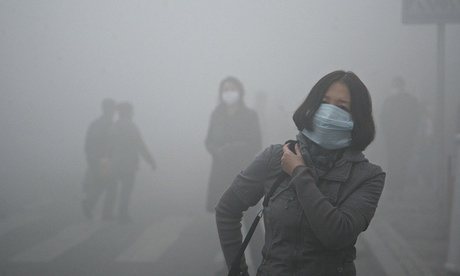Climate change and human health: it’s a killer


The evidence for anthropogenic climate change is now clear and convincing. The Earth’s surface has warmed by more than 0.8 °C over the past century, and by approximately 0.6 °C in the past three decades.
This warming has been linked to more extreme weather conditions such as intense floods and droughts, heavier and more frequent storms, and a possible increase in frequency and intensity of the El Niño Southern Oscillation that have caused a rise in rates of mortality and diseases.
Another public health ailment that many people are unfortunately very familiar with are allergies. There are emerging relationships between ragweed, hay fever and changing climate. Upper-respiratory ailments and asthma are also linked with polluted air.
Also, an emerging environmental health threat is the decline in global freshwater resources, caused mainly by increasing rates of water extraction and contamination. Climate change is expected to worsen this decline in water quality and quantity, particularly in already dry regions such as the eastern Mediterranean and North Africa.
A fourth impact on human health is yet more indirect, and comes as a result of climate change’s effect on human society and economic development. Experts now think that climate change is raising rates of malnutrition and mental health.
In the developing world, malnutrition is rising because crops are failing, and that’s happening because of extreme weather. Cycles of drought and flood in West Africa are making it harder and harder for subsistence farmers to grow enough food to feed their families. As a result, people go hungry and children in particular suffer from malnourishment.
On the other hand, the impact of climate change on mental health is a relatively new field of enquiry, but it should not be underestimated. People who have survived droughts, floods, tropical storms and similar extreme weather events often lose their homes and their families. As a result, they can experience post-traumatic stress disorder, severe depression and other mental health problems. In developing countries, where the impacts of climate change are at their most severe, there is less access to mental health services, so symptoms go untreated and unchecked.
The most effective responses are likely to be strengthening of the key functions of environmental management, surveillance and response to safeguard health from natural disasters and changes in infectious disease patterns, and a more pro-active approach to ensure that development decisions serve the ultimate goal of improving human health.
For the most part these are not new interventions but existing tools underutilized due to the “true killers”: lack of political commitment and of financial resources. Climate change therefore demands that we intensify our efforts in preventive public health and place that crucial task at the core of sustainable development.
Prepared by





